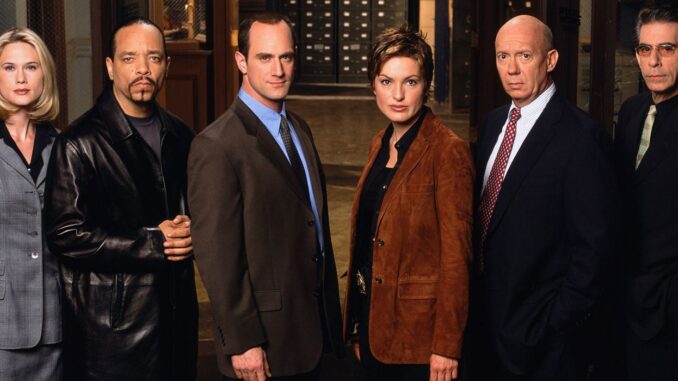
The Enduring Echo of the “Dun-Dun”: A Universe Forged in Longevity
In the sprawling, often tumultuous landscape of television, where shows burn bright and fade quickly, a rare breed of narrative anchors itself deeply into the cultural consciousness, defying the relentless currents of trends and time. Among these titans, the “Law & Order” Universe stands as an indomitable monolith, its recent renewals of Law & Order: SVU and the flagship Law & Order for record-breaking runs not just marking a milestone, but etching a profound chapter in television history. This isn’t merely the story of two long-running shows; it’s an illustrative tale of a formula perfected, a mirror held up to society, and a universe that has become synonymous with the pursuit of justice, one “dun-dun” at a time.
At the heart of the “Law & Order” phenomenon lies a narrative blueprint of elegant simplicity and profound depth. Creator Dick Wolf’s genius was in crafting a procedural drama that felt both comfortably familiar and startlingly immediate. The famous “ripped from the headlines” approach lends a verisimilitude that few dramas achieve, transforming current events into compelling, often uncomfortable, legal and moral quandaries. This structure—the initial crime, the methodical police investigation, followed by the rigorous, often morally ambiguous, courtroom drama—provides a predictable yet endlessly engaging rhythm. Viewers aren’t just passive observers; they are drawn into the intellectual puzzle, weighing evidence, judging motives, and grappling with the complexities of justice in a world that rarely offers easy answers. It’s a formula that eschews gratuitous melodrama for a focused, almost clinical, examination of the human condition under duress.
Law & Order: Special Victims Unit embodies this formula while forging its own indelible path. Renewed for an unprecedented 26th season, SVU has transcended its origins to become the longest-running live-action prime-time drama in television history. This isn’t just a numerical feat; it’s a testament to its courage and conviction. Tackling the most heinous and sensitive of crimes – sexual assault, child abuse, domestic violence – SVU delves into the dark underbelly of human cruelty, but always with an unwavering focus on the victims. Mariska Hargitay’s Olivia Benson has evolved from a dedicated detective into a fiercely empathetic advocate, her character a beacon of resilience and justice. The show’s longevity illustrates its vital role in opening dialogues, shaping public perception, and even influencing real-world policy and victim support. It illustrates how television, when wielded responsibly, can be more than entertainment; it can be a catalyst for understanding and change.
The triumphant return and subsequent renewal of the flagship Law & Order series further amplifies this historical achievement. Cancelled in 2010 after a then-record 20 seasons, its revival in 2022 was an unprecedented gamble that paid off handsomely. Now, renewed for its 24th season, it has tied “Gunsmoke” for the most seasons of any live-action scripted prime-time drama, and will soon surpass it. The original Law & Order is the progenitor, the definitive procedural that spawned a universe. Its return wasn’t merely a nostalgic nod; it was a defiant roar, proving that its classic formula – the interplay between Detectives and District Attorneys, the relentless pursuit of truth through the labyrinthine corridors of the NYPD and the DA’s office – remains as relevant and compelling today as it was in 1990. The sight of Sam Waterston’s Jack McCoy, the quintessential prosecutor, still delivering closing arguments, is more than just familiar; it’s an enduring symbol of justice persevering.
Together, these two shows don’t just stand tall individually; they represent the incredible power of the “Law & Order Universe.” This is not a shared cinematic universe in the superhero sense, but a thematic and stylistic one, bound by a shared ethos. The occasional crossover, the consistent visual language, the iconic theme music, and the very sound of that “dun-dun” serve as narrative anchors, creating a consistent world that viewers can reliably return to. In a fragmented media landscape oversaturated with content, the “Law & Order” brand offers comfort, familiarity, and a consistent promise: a compelling story of good versus evil, law versus chaos, played out with a stark, intellectual rigor.
The record-breaking runs of SVU and the original Law & Order are more than just numbers on a spreadsheet for NBC. They are a profound illustration of television’s capacity for enduring relevance, for perfecting a formula, and for creating characters and narratives that resonate across generations. They represent a universe built not on explosions and CGI, but on dialogue, moral dilemmas, and the timeless, unwavering search for justice. As the “dun-dun” continues to echo through our living rooms, it serves as a powerful reminder that some stories, like the pursuit of law and order itself, are truly eternal.
